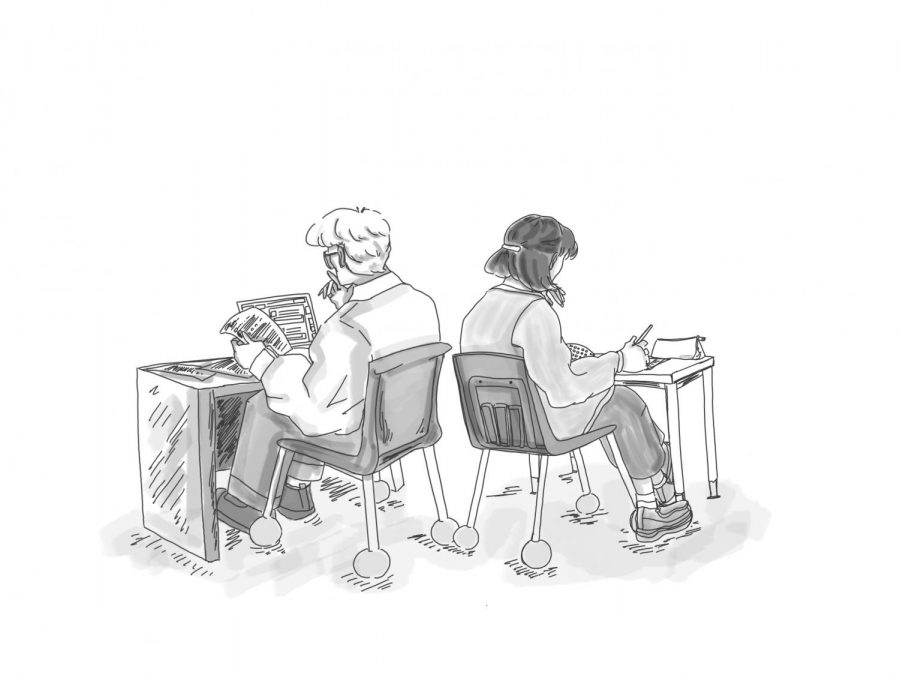Finals policies, procedures should not be more lenient
Finals season is, admittedly, most students’ least favorite part of the semester or year. After all, in- formation that was only covered once in August is fair game for test questions, and multiple tests over the course of three days can be exhausting and stressful. However, cumulative exams have benefits as well and are an inevitable part of the modern education system. Finals policies should not be more lenient because they help students solidify information learned throughout the semester, foster techniques students can use in later life and help prepare for college and beyond.
Finals are a way to ensure that information sticks better in a student’s mind. Too often, people take tests and automatically forget the information the second they walk out of the room. While not all knowledge learned in school is essential for everyday tasks, many topics are beneficial to remember, such as applied math problems or how the human body functions. Also, most subjects build off previous units, so it is helpful to know the material from previous tests. By having to study the same information at least twice—once for the unit test and once for the final—students are more likely to remember the information, even after the semester or year is over. According to a study by Psychology Today, final exams utilize the “spacing effect” to help students retain information in the long run. Studying something a couple of months after one has already learned it makes it easier to remember later in life. Therefore, students will be able to remember more of the information learned through studying for a final exam than if they only studied for a unit test.
Most college courses have a final at the end of the semester or quarter, so get- ting used to taking finals in high school is beneficial for post-graduation. If students never took finals or had more lenient policies toward them in high school, they would never know how to properly handle finals season in college. Cumulative exams in high school allow students to explore which study techniques work for them, as well as learn how far in advance they need to start studying in order to do well on the final. This way, students are more prepared for longer and more difficult tasks later in life. It is significantly more difficult to learn this about oneself later on in life, especially when course material typically gets harder in college and there are fewer resources to help students study.
While finals are a lot of stress, they’re still beneficial as long as the teacher makes sure an exam fairly represents what they have taught throughout the semester. If a student is doing well in a class all the way up until the final, it is highly unlikely that their grade will be botched by the final—as long as it is a reasonable test. The only finals that students who study well have to worry about are those that are unfairly difficult. This is why it is the teacher’s job to challenge their students in a fair way without causing students to stress unhealthily about the class. Finals that are good representations of the material learned throughout a semester are still beneficial for students.
Policies for cumulative exams at the end of each semester should remain as they are. Students are more likely to retain information in the long run by studying the material a second time and gain a better sense of their own study habits in order to prepare themselves for college and later life in general. While most students agree that finals are one of the most stressful parts of the semester, all students must experience it at some point in their lives—it’s better to gain this exposure sooner than later.
Your donation will support the student journalists of Henry M. Gunn High School. Your contribution will allow us to purchase equipment and cover our annual website hosting costs.


